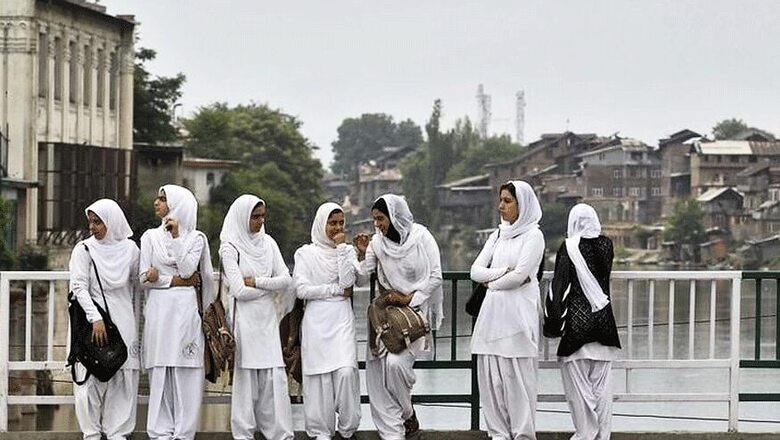
views
New Delhi: Refusing to treat Hindus as a 'minority' in Jammu and Kashmir, the state government has told the Supreme Court that it will continue to give 'minority' benefits to the Muslims, although the state is not bound by the National Commission for Minorities (NCM) Act and Muslims comprise a majority population here.
In a 10-page affidavit that chooses to use “special segments of society” instead of ‘Hindus’, the J&K government has taken a peculiar position.
It accepts the NCM Act so far as it recognises Muslims as one of the six minority groups in the country but holds in the same breath that the J&K government is not bound to identify minorities within the state under this Act.
The state has further refrained from making any assurance on setting up the state minority commission to identify religious and linguistic minorities in J&K, which will include Hindus.
In a statement replete with several conditions, the affidavit has said that the state will “consider and examine” the “need and feasibility” of establishing a state minority commission, “at the relevant time”, “as and when need arises” – based upon “critical study of the social backwardness of the minorities spread across various regions of the state”.
This statement in the affidavit virtually negates any possibility of setting up of a minority commission in J&K in near future, apart from disclosing that the PDP-BJP coalition in the state has so far not even deliberated upon the issue relating to identifying Hindus as a minority in Jammu and Kashmir and granting consequent benefits upon them.
The affidavit has been filed by the state government in response to a PIL moved by advocate Ankur Sharma, who has questioned how Muslims can enjoy the benefits of minority community in J&K despite being in majority there.
Sharma has further pleaded for the setting up of a minority commission in the state as per the directions of the Supreme Court, which had 15 years ago, held that it was incumbent upon every state to identify minorities within a state as a unit for giving benefits.
The lawyer has countered the J&K government’s argument that benefits to Muslims in the state was not under the NCM Act but under the Prime Minister’s 15-point programme for welfare of minorities.
He has pointed out that even the PM’s 15-point programme guidelines clarify that if a nationally-identified minority happens to be a majority in any state, only the other notified minorities should get the benefits. Under the NCM Act, six communities – Muslims, Christians, Sikhs, Jains, Buddhists and Parsis have been notified as minorities.
The J&K government, however, has now told the apex court: “Minorities, as notified by the central government who are residing in the state of J&K, are as such entitled to all the benefits under various schemes meant for minorities, including the PM’s 15-point programme in spite of the fact that the NCM Act is not applicable to J&K.”
The affidavit added that a special project called ‘Chief Minister’s Inclusive Development Initiative’ is being formulated by the state government to consider special needs of the minorities residing in J&K, and to have a focused development effort for “certain special segments of the society.”
It further said that various scholarship schemes are also likely to be drafted to take care of the difficulties of “special segments of the population, including minorities residing in the state of J&K”. The reference to “special segments” here apparently connotes Hindus, Sikhs and other minority groups in the state.
After this PIL was filed, the central government had in March this year constituted a committee, headed by the Secretary of the Ministry of Minority Affairs, to examine issues pertaining to minority status in J&K.
On the last date of hearing, Attorney General KK Venugopal had informed the Court that this committee last had a meeting in October, and sought some more time to complete the deliberation. The Court is likely to take up this case in February now.



















Comments
0 comment